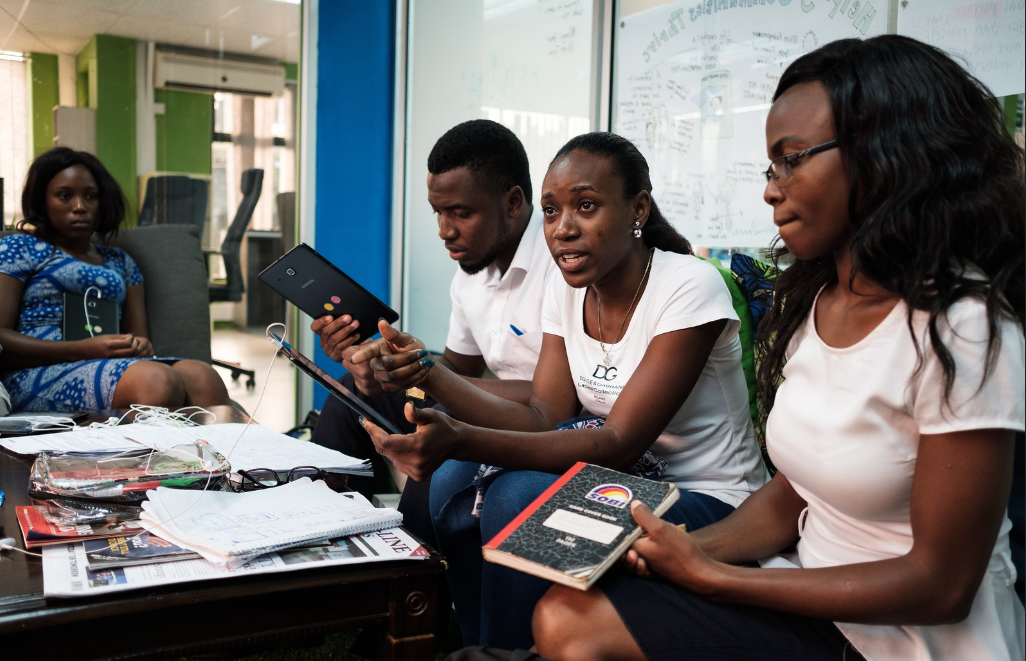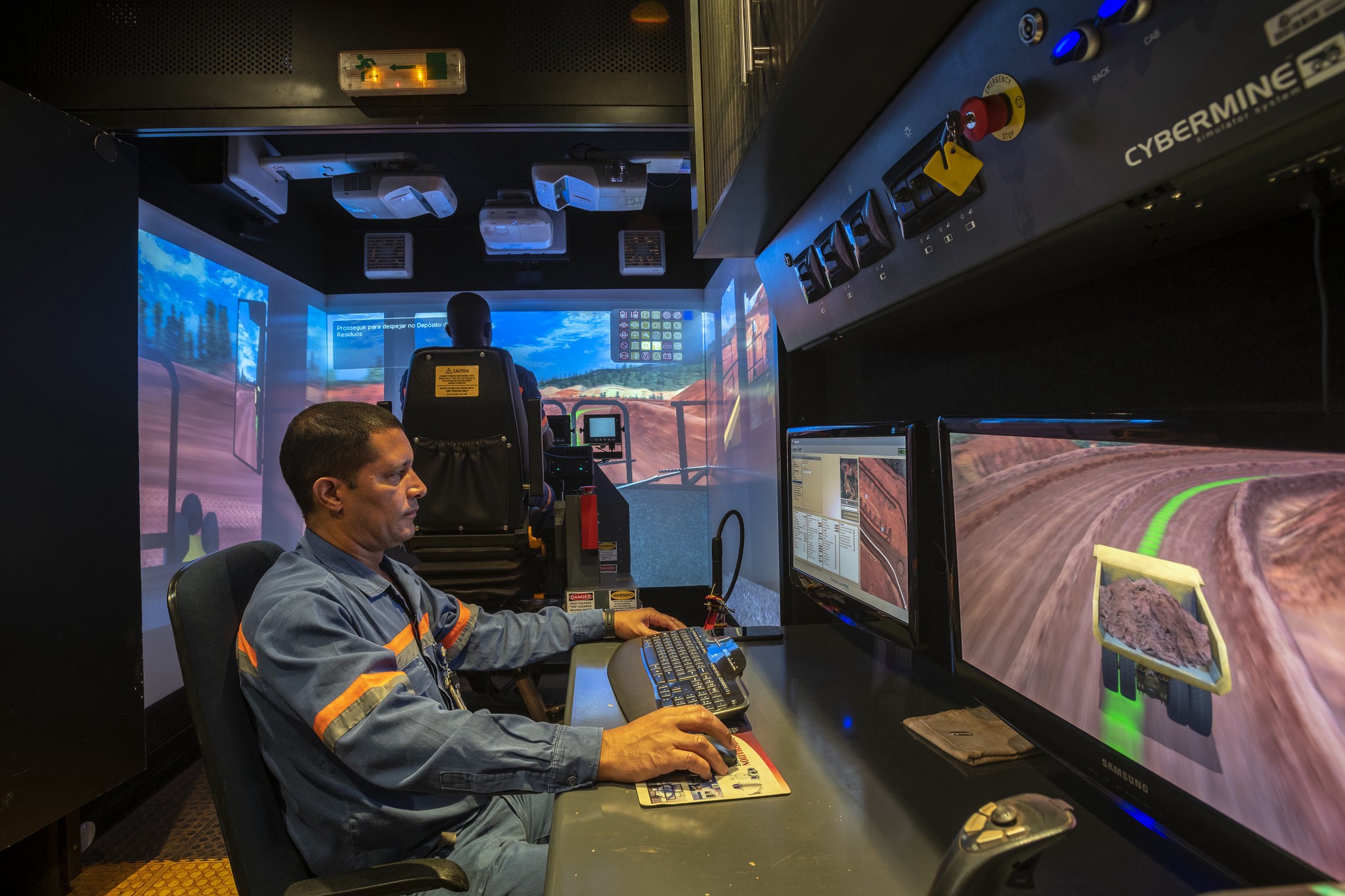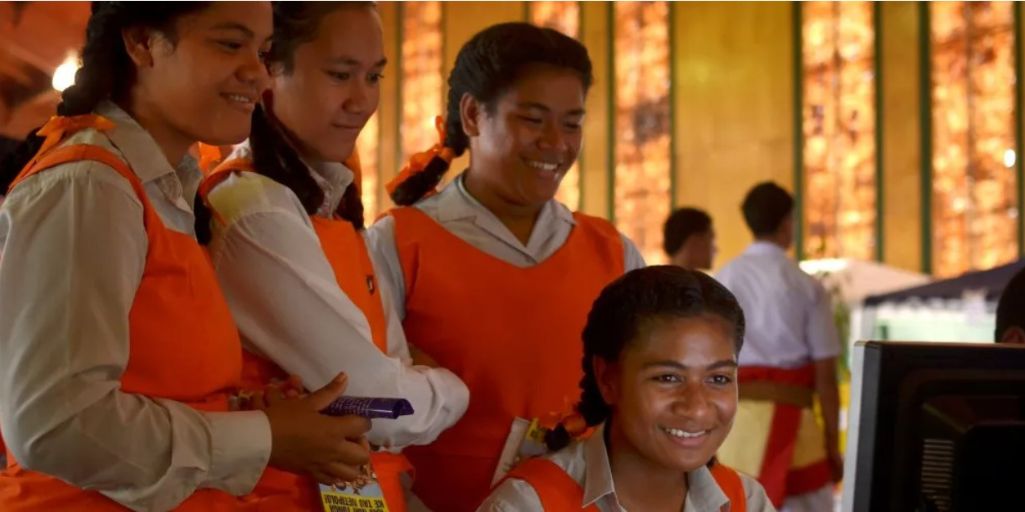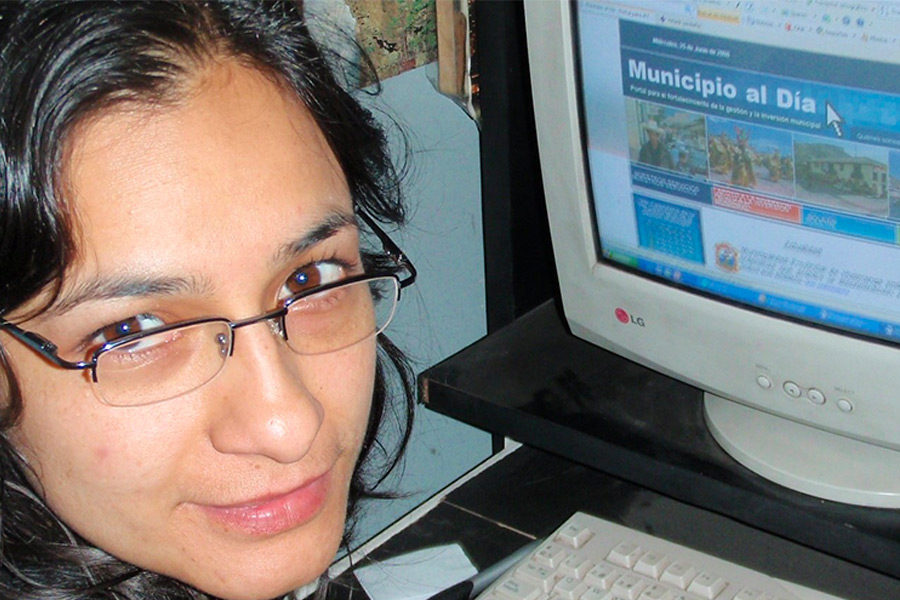Blog
-

-
Digital Inclusion and Europe Lead, Sustainable Infra Advisory, IFC
Feb 4, 2020

Photo © Nyani Quarmyne/International Finance Corporation
Data is the new gold. You may not wear it on your finger or store it in a bank, but you can use it to stimulate growth, create power, and exert influence. The digital economy, fueled by data, is growing faster than the traditional economy. But unlike talent, opportunity is not distributed equally. Youth in developing countries, and women, in particular, are at risk of being left behind the digital divide. Shockingly, 50% of women are not yet online, and 10 percent fewer women own mobile phones than men. At the upcoming Mining Indaba conference in South Africa, IFC is asking what companies, governments, civil society, and development partners can do to promote youth and women’s participation in the digital economy.
The 4th Industrial Revolution is transforming the mining industry with Big Data, AI, IoT, and impending 5G technologies. These changes expand the use of predictive equipment maintenance, make exploration more precise and efficient, and fuel the automation of labor. Disruptive automation on labor markets will have both positive and negative impacts as outlined in a recent paper by the Intergovernmental Forum on Mining, Minerals, Metals and Sustainable Development (IGF) New Tech, New Deal:
- Positive impacts: New jobs will be created to manage newly-automated processes. We know new jobs will favor workers with high levels of digital, STEM, and cognitive skills, such as problem-solving, leadership, emotional intelligence, and creativity. Some futurists predict that as many as 85% of jobs in 2030 haven’t been invented yet, and 65% of children starting school will one day hold jobs that do not exist today. The working environment will become more agile, with more non-permanent, contractual workers.
- Negative impacts: Lower-skilled jobs involving simple, repetitive tasks will be cut, exacerbating unemployment among poor, unskilled workers. Changes in the mining industry will impact not only the mines themselves but also the nature and types of firms supplying mines, including a growing number of tech firms becoming suppliers. Various reports raise concerns about vulnerable and indigenous communities being disproportionately locked out because they tend to be over-represented in lower-skilled jobs and occupations most at risk, such as trades, transport, and equipment maintenance.
- Neutral impacts: The changes will enhance and restructure a considerable number of occupations to improve productivity. Mining occupations — from field workers to operation center controllers — will be redesigned. Labor performing the tasks will need to be retrained and upskilled to be able to work with wearables, drones, AI-enabled decision assisting systems, and other technologies. Technologies such as VR/AR and AI can also help deliver these new skills.
But indigenous communities aren’t the only groups at risk — women and youth are also vulnerable. What can companies do to make sure women and youth are not left behind in the digital divide?
An obvious start is to ensure access to the internet. Mining companies could provide shared internet infrastructure to local communities or provide free/cross-subsidized access. It would help a lot, but that alone won’t be enough to close this gaping divide.

Photo © Anglo American Plc
IFC’s Sustainable Infrastructure Advisory team has researched this issue and has relevant experience through on-the-ground work in this space. Here are three success factors that we believe can help:
- Understand your company’s readiness to use data effectively. You can get started by using IFC’s Unlocking Data Innovation self-assessment. If you’re interested in collaborating on a community-focused pilot, call IFC’s Sustainable Infrastructure Advisory team.
- Identify local youth and women networks: civic technology enthusiasts (such as Code for Africa and its national chapters), entrepreneurs (for example, local networks of Startup Weekend, business incubators like MEST), STEM student and women groups (such as Laboratoria, WomEng, SheCodes), data scientists networks (like Unearthed). Consider groups that meet regularly in person, as well as digital networks of geographically distributed folks.
- Engage in digital content co-creation to meet women- and youth-specific needs for information. Many data points were designed and collected by older men with a specific kind of education, which may or may not be relevant for other users. What if you enable women and youth themselves to be effective digital content creators? This means both including them in capacity building activities and building an environment where women can freely speak their minds and create content that reflects the realities faced by women and girls. Women, too, can create blogs, podcasts, write code, post on Facebook, Twitter, or TikTok. Check out projects that help bridge the digital gender gap: Wiki Loves Women, Women Will, and She Will Connect.
Taking these steps can make a difference. In our next post, we explore approaches that build on these and dive more deeply into data, data analytics, and models that leverage data for greater impact.
Veronica Nyhan Jones is Manager Sustainable Infrastructure Advisory and Alla Morrison is “From Disclosure to Development” (D2D) Program Manager of the International Finance Corporation.
For more, follow IFC Infrastructure updates and news on LinkedIn @IFCInfrastructure
Related Content
Data must fuel gender equality. Here’s how to do it
Community Investment and Partnerships
Gender
Local Government and Development
IFC Helps Bridging the Capacity Gap of Local Governments in Peru
Community Investment and Partnerships
Gender
Local Government and Development
Raising the World Bank Group’s ambition on gender equality
Community Investment and Partnerships
Gender
Local Government and Development


